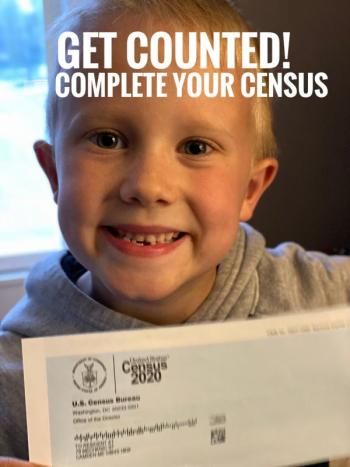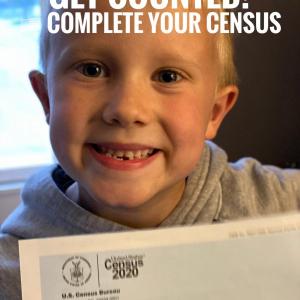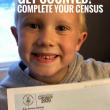Ten years of census guilt
One great thing you can do for our community and our state while you’re stuck at home is to fill out the Census and get counted. The U.S. census only happens once every decade and determines billions of dollars in funding for state and local governments for everything from emergency preparedness to roads and schools.
The truth is, I have been living with a little bit of census guilt for nearly a decade, but it wasn’t until getting involved in town government about five years ago that my crime of omission (yes, it’s technically a federal crime not to respond to the census) really started to bother me as I saw how it can have an actual impact on my community.
In 2010, I had just had a baby (so he wasn’t counted either) and was overwhelmed by lots of things which led to procrastinating opening the census envelope until I forgot altogether. I bet there are lots of people like me. At the time, in addition to my new baby, there were three to four other housemates who shared our home, all of them in the key demographic that previous census data have indicated is on the decline in both Camden and the state as a whole. None of them got counted.
We are constantly told that the population in Maine is getting older and smaller. That may be true, but I tend to imagine it’s less true than the data are showing. How many distracted young people like myself have gone uncounted? Currently, Maine is about 10 percentage points behind the average national response rate for the 2020 census.
The census data is used for more than just government funding models. Businesses also use it to help decide where to locate. If all of the official stats show us as being smaller and less diverse than we really are, what impact might that have? It can’t be good.
Here’s a quick list of some of the types of federal programs that use census data to determine funding:
Medical Assistance Program/Health Insurance, Highway Planning and Construction (includes sidewalks and pedestrian and bicycle upgrades), the National School Lunch Program, Section 8 housing vouchers, State children’s health insurance assistance, low income energy assistance, wildlife restoration, adult education grants to states, emergency preparedness, and so much more.
As the official census website says: “over the next decade, lawmakers, business owners, and many others will use 2020 Census data to make critical decisions. The results will show where communities need new schools, new clinics, new roads, and more services for families, older adults, and children.”
The data will also be used to determine how Congressional districts are drawn, the number of representatives our towns get on regional boards, and the way state sales tax revenue is shared. I’m sure many of you can think of different reasons why the data are important.
And if you worry that your living situation or housemates may somehow get you in trouble, fear not. By law, the Census Bureau cannot release any identifiable information about you, your home, or your business, even to law enforcement agencies. That's protected under Title 13 of the U.S. Code. Your answers are kept totally private and no court or government agency can ever use these responses against you.
And if none of this has been compelling to you so far, do it for your great great grandchildren. Historical census records are an essential tool for genealogy researchers and historians.
I asked my kids to keep reminding me to fill out the census until it was done. This weekend we finally did it, and with ten years of census guilt off my shoulders, I am feeling a little lighter knowing that we’ve been counted over the next decade of decision making. With 6 members of the household, it took about 20 minutes and was completed all online. Go to https://my2020census.gov to complete yours.
Alison McKellar lives in Camden and is a Select Board member
Event Date
Address
United States


























